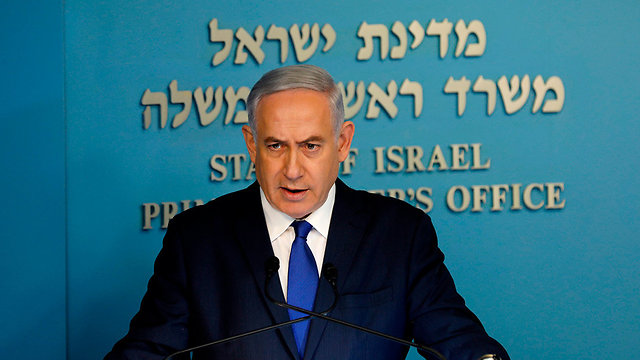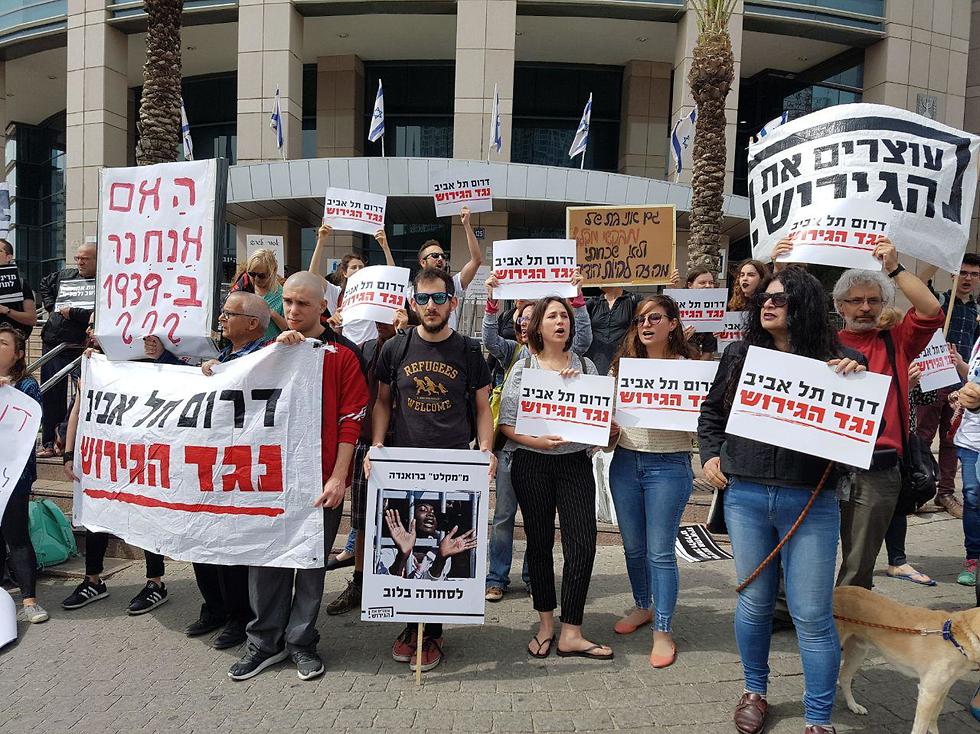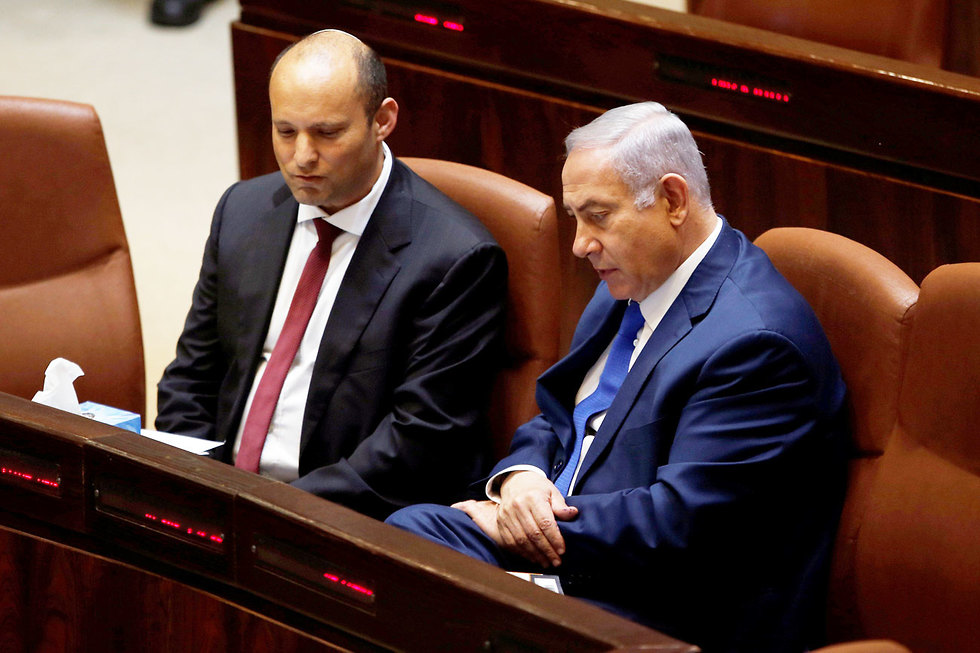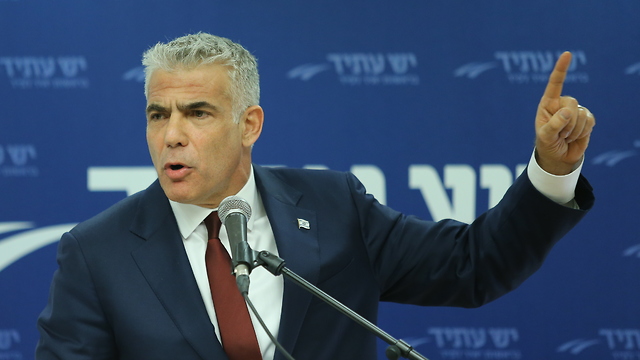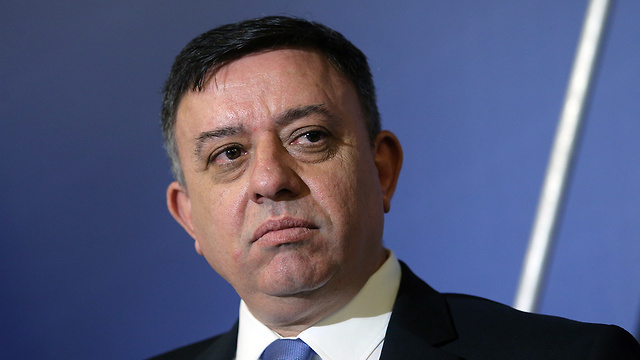

In latest volte-face, PM nixes UN-migrants deal
After meeting with representatives of south Tel Aviv, disgruntled by Monday's cancellation of mass deportation plan for illegal African migrants, and facing pressure from his right-wing flank vexed by mere suspension of UN deal, Netanyahu cancels it altogether; 'Despite legal restrictions ... we will remove the infiltrators.'
“I have listened attentively to the statements about the agreement. As a result, and after reevaluating the advantages and disadvantages, I have decided to nullify the agreement,” Netanyahu said in his opening remarks during a meeting in Tel Aviv with disgruntled residents of south Tel Aviv over the government’s sudden decision to accept the UN agreement the previous night and abort mass-deportation plans.
“Every year I make thousands of decisions that safeguard the State of Israel and the people of Israel. From time to time, a decision is taken that requires the need to reconsider afresh,” he said, justifying his latest U-turn on the issue.
“In the past 24 hours, I have held many advisory sessions with Interior Minister Aryeh Deri, with professional officials and with representatives of south Tel Aviv. Despite the growing legal restrictions and the international difficulties, we will continued to act with determination to exhaust all options at our disposal and to remove the infiltrators,” he declared.
“In addition, we will continue to look for other solutions. The decision to establish an Administration for the Rehabilitation of South Tel Aviv will remain in place,” Netanyahu pledged. “The administration will begin to operate in the near future, in cooperation with representatives from south Tel Aviv.”
The UNHCR hopes that Israel will "soon reconsider" its decision to cancel its agreement with us, a UNHCR spokesperson told AFP.
"We continue to believe in the need for a win-win agreement that can benefit Israel, the international community and people needing asylum and we hope that Israel will reconsider its decision soon," said UNHCR spokesman William Spindler.
The decision comes on the heels of pressure exerted by members of the right-wing government and a day of flip-flopping on the matter.
Netanyahu dashed the hopes of deportation advocates the previous evening by saying he would scrap plans for mass deportation of the illegal migrants, replace it with the UN deal, announce its suspension shortly after, and most recently to drop it altogether.
Bayit Yehudi leader and and Education Minister Naftali Bennett was among the most vociferous in rejecting Netanyahu’s acceptance of the deal with the UN, according to which it would work to reach agreements with different Western countries to take in at least 16,250 of the Sudanese and Eritrean asylum seekers.
“The agreement with the UN about the absorption of infiltrators is bad for Israel,” Bennett wrote in his Twitter account prior to the latest announcement. “It’s not enough to suspend it. I call on the prime minister to completely cancel it.”
Accepting the deal, he argued, would “constitute a disaster for future generations and will set a precedent for Israel to grant residency to declared infiltrators. The Israeli government will not be able to convince a single person in the future that infiltration into Israel is not worthwhile,” he said.
Subsequent to the fresh announcement, Bennett praised Netanyahu’s decision. “I welcome the prime minister and his wise decision to cancel the deal for absorbing infiltrators. We will avoid a disaster for future generations. Now, we must work to remove the illegal infiltrators.”
Bennett has spearheaded the coalition pressure on Netanyahu to cancel the deal, saying that it would “give status to 16,250 infiltrators in Israel and turn Israel into a haven for infiltrators” and he was joined by Finance Minister Moshe Kahlon, Transportation Minister Yisrael Katz and staunch Netanyahu ally Culture and Sports Minister Miri Regev.
According to the deal, Israel would grant legal status to protected populations among the asylum seekers, some 18,000 refugees who would have remained in the country regardless.
Criticism from members of the opposition quickly flowed in, however, with Yesh Atid leader Yair Lapid slamming Netanyahu.
“The problem is not only that he went back on his decision, but rather that instead of working he is manipulating everyone else,” he charged. “Israel needs to take care of the refugees, because that is a Jewish value, and it is permitted to deport work migrants since we are a civilized country.”
Lapid then offered his own solution to the problem. “What the government should have done a long time ago was to build a mechanism that separates them in a humane and decent manner and to invest resources in rehabilitating south Tel Aviv,” he suggested.
“It didn’t do that because this is a government that prefers conflict and quarrels to action. What we saw yesterday is what we see all the time,” Lapid went on in his broadside. “Starting with the Iranian issue and ending with the cost of living under which an entire generation will live. The prime minister who doesn’t care about anything except politics. He wasn’t like this.”
Chairman of the Zionist Union camp, Avi Gabbay attacked the prime minister’s handling of the matter as “lacking leadership, cowardly, shirking responsibility, incitement against communities, empty language, inability to make decisions, no ability to implement. That is what we have seen over the last few hours from someone who pretends to deal with real problems and threats to the State of Israel and Israeli society.”
“How will the prime minister deal with the Iranian threat? How will he deal with the price of living?” he asked. “Israel needs a prime minister with the ability to make decisions and to study the crux of the complex matter and, above all, the ability to implement.
Leader of the opposition, MK Isaac Herzog also didn’t remain silent after Netanyahu’s decision. “The wonderful U-turn Netanyahu did in the last 24 hours regarding the immigrants and asylum seekers points to, more than anything else, the weakness and history of the prime minister, and that politics harms again and again his decisions and his obligations for the good of the state,” he vented.
“The decision to violate an international agreement that would have enabled the finding of a reasonable solution will complicate matters for the State of Israel in legal, diplomatic and humanitarian aspects,” he added.
South Tel Aviv has been hardest hit by the influx of predominantly Sudanese and Eritrean migrants who crossed Israel’s once-porous southern border.
People advocating the deportation program were enraged by the indecision on what they believed was a sealed deal with Rwanda on the migrants, who were believed to have agreed to absorb them, but Netanyahu’s suspension of the UN agreement nudged anti-deportation protesters to take to the streets yet again.
Shahar Hay, Moran Azulay and Amir Alon contributed to this report.














